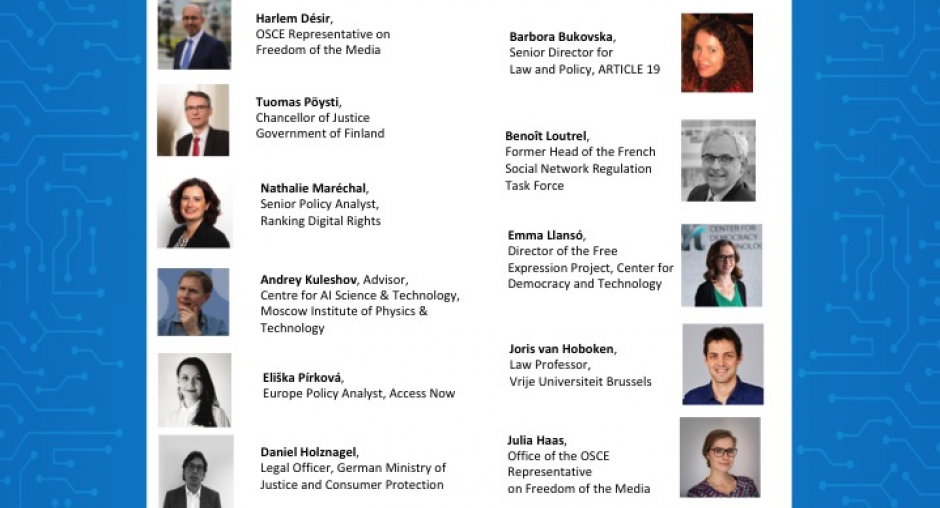OSCE online event on “The rise of artificial intelligence and how it will reshape the future of free speech” concluded, now consultation phase begins

VIENNA, 8 July 2020 – The online event on “The rise of artificial intelligence and how it will reshape the future of free speech”, organized by the OSCE Representative on Freedom of the Media (RFoM), concluded today in Vienna. It was followed by a call for feedback from all stakeholders.
The RFoM event provided a platform to discuss the role of AI in shaping and arbitrating online information, and the impact this has on freedom of expression. The event focused on the possible way forward to safeguard free speech when deploying automation and AI. An RFoM Strategy Paper to put a spotlight on AI and freedom of expression (#SAIFE) with preliminary recommendations, which provided the foundation for these discussions, was published ahead of the event.
The event brought together a broad audience of 200 participants, including experts from participating States, civil society, academia, the tech industry and other international stakeholders to enable interactive discussions. The speakers included Nathalie Maréchal (Senior Policy Analyst, Ranking Digital Rights); Andrey Kuleshov (Advisor, Centre for AI Science and Technology, Moscow Institute of Physics and Technology); Benoît Loutrel (Former Head of the French Social Network Regulation Task Force); Eliška Pírková (Europe Policy Analyst, Access Now); Daniel Holznagel (Legal Officer, German Ministry of Justice and Consumer Protection), Joris van Hoboken (Law Professor, Vrije Universiteit Brussels); Emma Llansó (Director of the Free Expression Project, Center for Democracy and Technology); Tuomas Pöysti (Chancellor of Justice of the Government of Finland); and Barbora Bukovska (Senior Director for Law and Policy, ARTICLE 19).
During his welcoming remarks, the OSCE Representative on Freedom of the Media, Harlem Désir, stressed the importance of understanding AI’s potential and its impact on the future of human rights, particularly on freedom of expression and freedom of the media.
“The use of AI in content moderation and curation directly influences what we, as individuals and society, can access, see, and read online, and the way we can share our ideas and interact with one another,” said the Representative. “Today, we looked at how AI is used, and what this means for the enjoyment of our freedoms, especially free speech and media pluralism. However, we do not want to only identify the practices and policies in place, we also want to take the next step, to look ahead and discuss what all actors, including states, the international community, social media companies, and civil society can do to prevent, or retract, the negative implications that AI can have on free speech.”
Now that the event has concluded, the Office of the RFoM wants to draw attention to the upcoming consultation phase, which will provide all stakeholders with the opportunity to provide feedback on the project’s work, including the #SAIFE Strategy Paper and the event’s discussions, in view of further elaborating policy recommendations on how to safeguard free speech when AI is deployed. This consultation phase will enable inclusiveness and feed into expert meetings starting this autumn. All information will be available on the website: https://www.osce.org/fom/ai-free-speech.
The full #SAIFE paper is available here: https://www.osce.org/files/f/documents/9/f/456319_0.pdf.
The OSCE Representative on Freedom of the Media observes media developments in all 57 OSCE participating States. She provides early warning on violations of freedom of expression and media freedom and promotes full compliance with OSCE media freedom commitments. Learn more at www.osce.org/fom, Twitter: @OSCE_RFoM and on www.facebook.com/osce.rfom.
